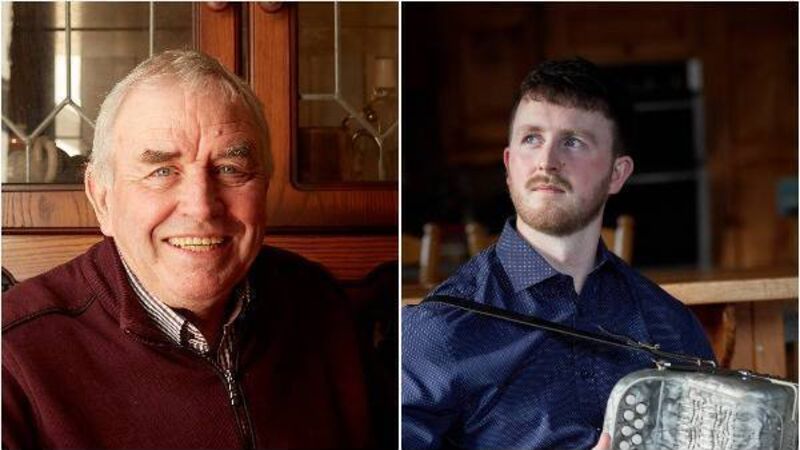Connie and Diarmuid ensure Múscraí makes its mark in TG4 Gradam Ceoil awards

Connie O’Connell and Diarmuid Ó Meachair.
Half a century in experience but less than 10 miles in distance divide Cill na Martra composer and fiddle player Connie O’Connell and Cúil Aodha’s rising accordion and melodeon star Diarmuid Ó Meachair.
This year’s winners of TG4’s Gradam Ceoil awards for composer and young musician of the year respectively, both are Múscraí Gaeltacht natives who have drawn from the well of local tradition and looked west for musical inspiration.




